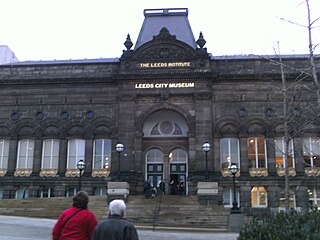
Mechanics' institutes, also known as mechanics' institutions, sometimes simply known as institutes, and also called schools of arts, were educational establishments originally formed to provide adult education, particularly in technical subjects, to working men in Victorian-era Britain and its colonies. They were often funded by local industrialists on the grounds that they would ultimately benefit from having more knowledgeable and skilled employees. The mechanics' institutes often included libraries for the adult working class, and were said to provide them with an alternative pastime to gambling and drinking in pubs.

The Historical Society of Washington, D.C., also called the DC History Center, is an educational foundation dedicated to preserving and displaying the history of Washington, D.C. The society provides lectures, exhibits, classes, and community events. It runs a museum, library, and publishes the journal Washington History. It had been named The Columbia Historical Society from its founding in 1894 until 1988.

The Boston Athenaeum is one of the oldest independent libraries in the United States. It is also one of a number of membership libraries, for which patrons pay a yearly subscription fee to use Athenaeum services. The institution was founded in 1807 by the Anthology Club of Boston, Massachusetts. It is located at 10½ Beacon Street on Beacon Hill.
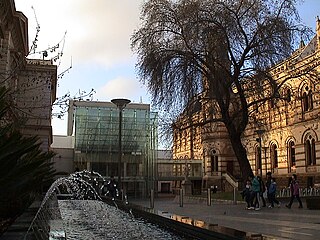
The State Library of South Australia, or SLSA, formerly known as the Public Library of South Australia, located on North Terrace, Adelaide, is the official library of the Australian state of South Australia. It is the largest public research library in the state, with a collection focus on South Australian information, being the repository of all printed and audiovisual material published in the state, as required by legal deposit legislation. It holds the "South Australiana" collection, which documents South Australia from pre-European settlement to the present day, as well as general reference material in a wide range of formats, including digital, film, sound and video recordings, photographs, and microfiche. Home access to many journals, newspapers and other resources online is available.

The Elizabethan Club is a social club at Yale University named for Queen Elizabeth I and her era. Its profile and members tend toward a literary disposition, and conversation is one of the Club's chief purposes.

A subscription library is a library that is financed by private funds either from membership fees or endowments. Unlike a public library, access is often restricted to members, but access rights can also be given to non-members, such as students.

The Surrey Institution was an organisation devoted to scientific, literary and musical education and research, based in London. It was founded by private subscription in 1807, taking the Royal Institution, founded in 1799, as a model. The Institution lasted only until 1823, when it was dissolved.

The General Society of Mechanics and Tradesmen of the City of New York is an educational and cultural association at 20 West 44th Street in Midtown Manhattan, New York City. It was founded on November 17, 1785, by 22 men who gathered in Walter Heyer's public-house at No. 75 King Street, one block from Wall Street, in Lower Manhattan. The aims of the General Society were to provide cultural, educational and social services to families of skilled craftsmen. The General Society during this early period celebrated the mutuality and centrality of the craft community. Besides its charitable activities, the society played a prominent part in the festivities that marked patriotic holidays, carrying banners emblazoned with its slogan 'By hammer and hand all arts do stand', echoing the motto of the Worshipful Company of Blacksmiths.
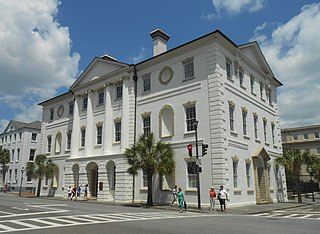
Charleston Library Society, founded in 1748, is a subscription library in Charleston, South Carolina.

The St. Louis Mercantile Library, founded in 1846 in downtown St. Louis, Missouri, was originally established as a membership library, and is the oldest extant library west of the Mississippi River. Since 1998 the library has been housed at the University of Missouri-St. Louis as a Special Collections library within the Thomas Jefferson Library. The majority of library materials can be assigned to one of four categories: the General (Core) Collection, the John W. Barriger Railroad Library, the Herman T. Pott National Inland Waterways Library, or the Art Museum. The collections of the St. Louis Mercantile Library have been named a City Landmark by the city of St. Louis, Mo., due to the cultural significance of the library.

The Hartford Public Library serves the city of Hartford, Connecticut, United States. The library's main branch is located at 500 Main Street in downtown Hartford. The nine branch locations are named Albany, Barbour, Blue Hills, Camp Field, Dwight, Goodwin, Mark Twain, Park and Ropkins. All branches feature free public access computers and free Wi-Fi.
The Mercantile Library Association (1820-1952) of Boston was an organization dedicated to operating a subscription library, reading room and lecture series. Members included James T. Fields and Edwin Percy Whipple. Although the association had a relatively long history, its heyday occurred in the mid-19th century, particularly the 1840s and 1850s.
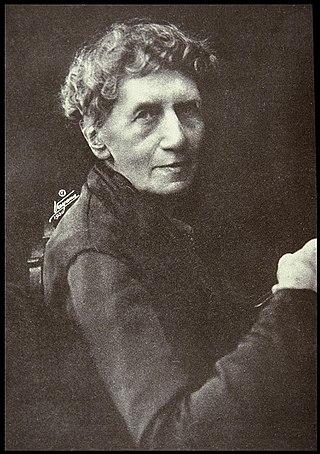
Caroline Maria Hewins was an American librarian.

The Swan River Mechanics' Institute was the Swan River Colony's first cultural centre, established on 21 January 1851. In time it was to house an extensive and well-used subscription library and a natural history collection, including botanical, zoological and mineral specimens. A new building replaced the old in 1899, and in 1909 the institute was renamed Perth Literary Institute.
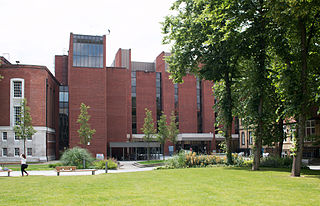
The University of Manchester Library is the library system and information service of the University of Manchester. The main library is on the Oxford Road campus of the university, with its entrance on Burlington Street. There are also ten other library sites, eight spread out across the university's campus, plus The John Rylands Library on Deansgate and the Ahmed Iqbal Ullah Race Relations Resource Centre situated inside Manchester Central Library.

The Center for Fiction, originally called the New York Mercantile Library, is a not-for-profit organization in New York City, with offices at 15 Lafayette Avenue in Fort Greene, Brooklyn. Prior to their move in early 2018, The Center for Fiction was located at 17 East 47th Street, between Madison and Fifth Avenues in Midtown Manhattan. The center works to promote fiction and literature and to give support to writers. It originated in 1820 as the Mercantile Library and in 2005 changed its name to the Mercantile Library Center for Fiction, although it presents itself as simply "The Center for Fiction".
Charles Frederick Partington was a British science lecturer and writer.
The Grand Trunk Railway Literary and Scientific Institute was a mechanics' institute and library formed by officers and employees of The Grand Trunk Railway (GTR) in 1857 at Point St. Charles, Montreal, Quebec. The Institute was incorporated in 1871, and active until 1923 when GTR was purchased by Canadian National Railways. The Grand Trunk Railway Literary and Scientific Institute is listed as a component of the Canadian National Railway.

The Sydney School of Arts building, now the Arthouse Hotel, is a heritage-listed meeting place, restaurant and bar, and former mechanics' institute, located at 275–277a Pitt Street in the Sydney central business district in the City of Sydney local government area of New South Wales, Australia. It was designed by John Verge and built from 1830 to 1861. It is also known as Sydney Mechanics' School of Arts. It was added to the New South Wales State Heritage Register on 2 April 1999.

William Alanson Borden was an American librarian and an organizer of city libraries in India who was an innovator of cataloguing systems. He was invited to Baroda by its ruler Sayajirao Gaekwar III who, impressed by the public libraries at New York, had invited him to organize a system of public libraries in Baroda which was a first for India.

















